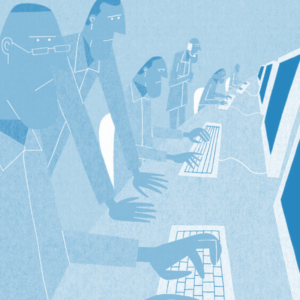The energy sector has never been as exposed to cyber risks as it is today. The increasing digitalization of infrastructure brings undeniable benefits in terms of efficiency and innovation, but at the same time opens the door to new and sophisticated threats.
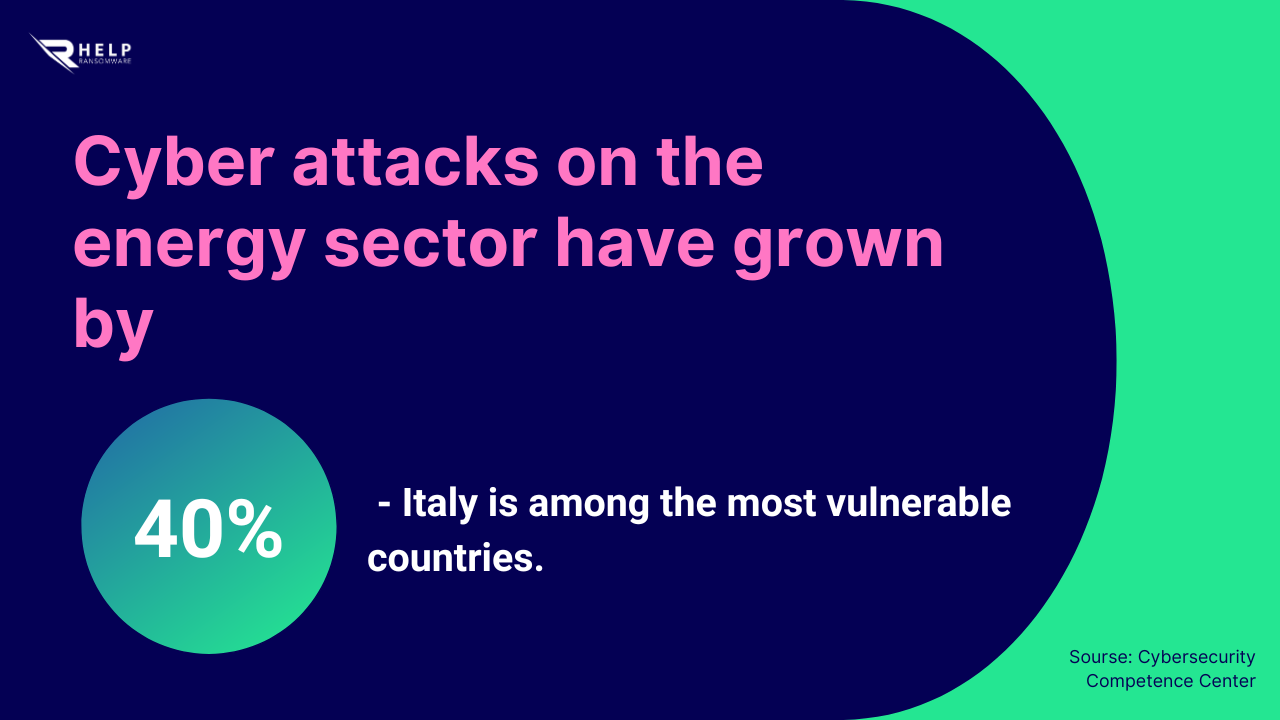
According to an analysis by the Cybersecurity Competence Center at Maticmind, reported in the latest analysis published by Milano Finanza, cyber attacks against the energy sector grew by 40% in 2024 compared to the previous year, and projections estimate a further increase of 21% by the end of 2025.
These are not isolated incidents: Europe has overtaken the Americas as the epicenter of the threat, accounting for nearly 60% of global victims. Italy, in particular, is among the most vulnerable countries: 75% of mentions of utilities on the dark web concern Italian companies.
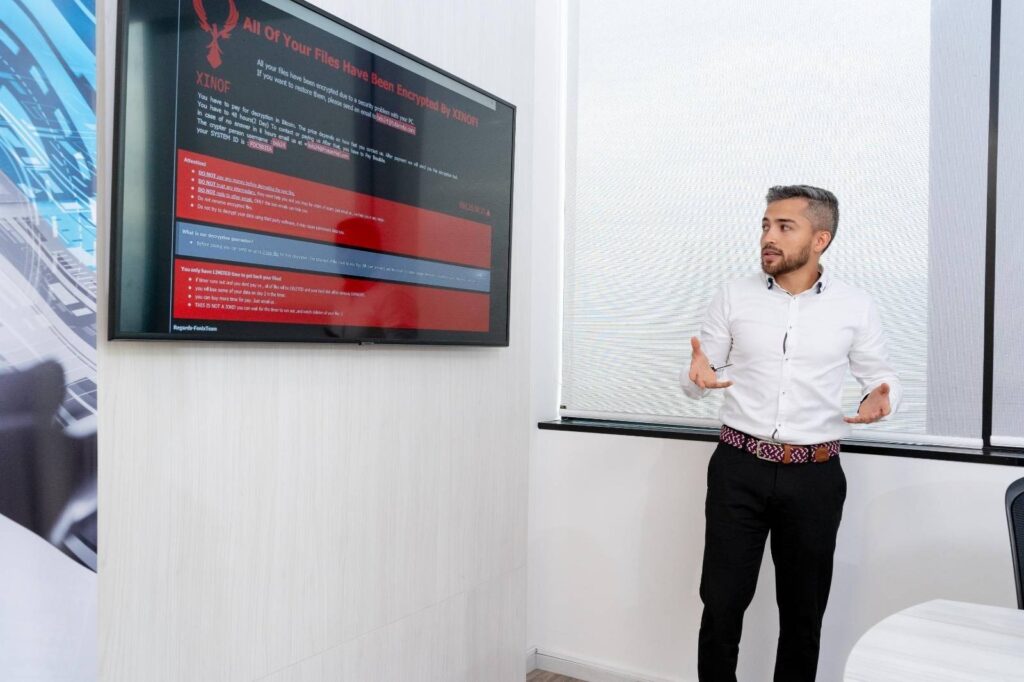
Immediate Ransomware Help
Don’t let ransomware hold your business hostage. Our experts are ready to recover your data and secure your systems.
Hacktivism on the Rise, Ransomware Still the Most Profitable Threat
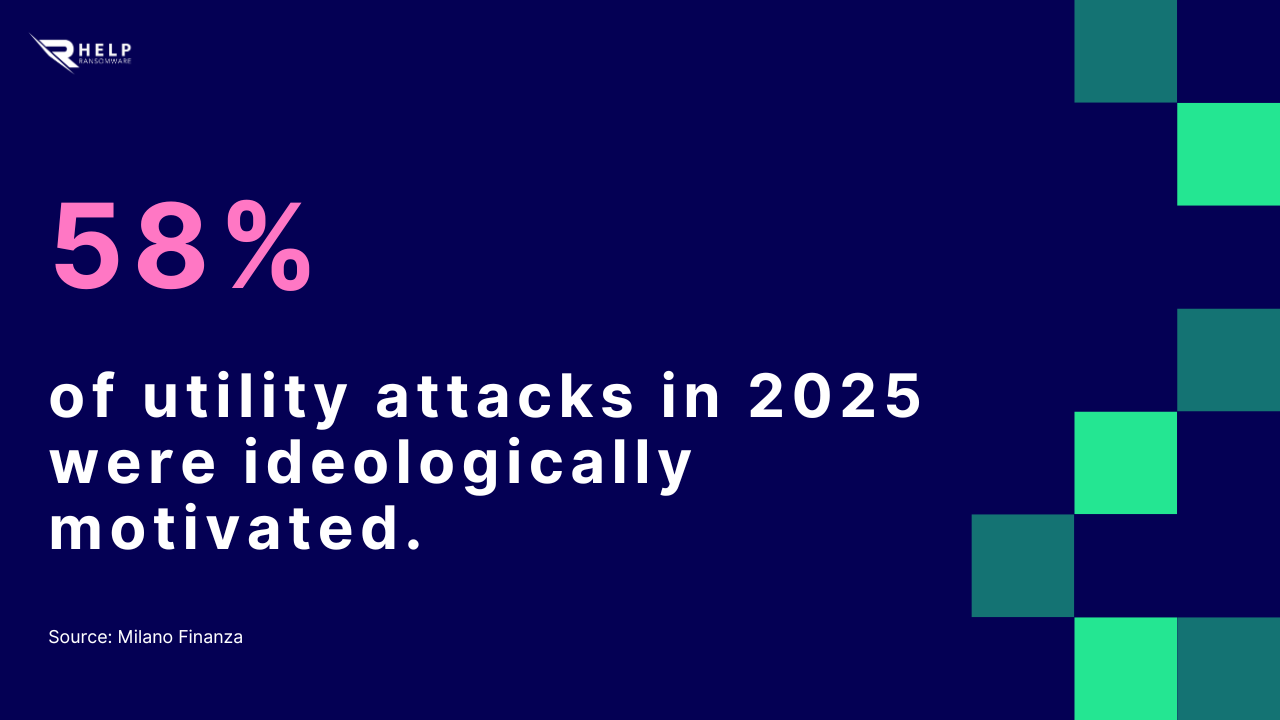
A surprising fact emerges from the report: in 2025, hacktivism — that is, attacks motivated by political, social, or environmental ideologies — overtook financial cybercrime for the first time. Today, it represents 58% of incidents in the energy sector.
Distributed Denial of Service (DDoS) attacks, for example, have exploded in Italy, growing by 107% in the first few months of 2025 alone. These attacks aim to block services, creating disruptions and instability that can have repercussions on the entire country.
At the same time, ransomware continues to be the most profitable business for criminal groups. According to the new Energy & Utilities Risk Radar Report from Trustwave SpiderLabs, the sector will see an 80% annual increase in ransomware attacks between 2024 and 2025. Groups such as LockBit, AlphV, and Hunters International have consolidated their dominance, targeting primarily the United States and Europe.
Italy: a privileged target
According to Maticmind’s analysis, some of Italy’s major energy companies have critical levels of exposure:
● Over 2,000 Active Directory accounts compromised,
● More than 150 privileged VPN credentials stolen,
● over 2,000 known and exploitable vulnerabilities.
And the problem isn’t just for energy companies, but also the entire supply chain.
Credentials from industrial and technology suppliers are often put up for sale on dark web marketplaces, turning every link in the supply chain into a potential entry point for attackers.
Why is the energy sector so exposed?
The digitalization of infrastructure has improved network efficiency and management, but has also expanded the attack surface. The convergence of IT (Information Technology) and OT (Operational Technology) makes systems more interconnected, but also more fragile.
An attack doesn’t just affect data; it can also have physical consequences : blackouts, power outages, and damage to industrial facilities.
In the United States, for example, the average age of the electricity grid is 40 years : an old and complex infrastructure that becomes even more vulnerable when integrated with digital systems. In Europe, the risk is similar, with the real possibility of cyber-kinetic attacks, capable of crossing from the digital world to the real world.
Prevention: from reactive defense to resilience
As Andrea Baggio , CEO of ReputationUP, points out:
“Cybersecurity is no longer a technical barrier: it is a strategic pillar to ensure continuity, reputation, and trust.”
For utilities, adopting a proactive approach is essential. Among the priorities identified by experts:
- Creation of security digital twins, to test attack scenarios in simulated environments.
- Adoption of advanced threat intelligence systems, capable of anticipating threats.
- Regular interdisciplinary exercises, to prepare personnel and infrastructure to respond to real incidents.
- Network segmentation and restricted access policies to limit damage in the event of a compromise.
- Disconnected and verified backups, essential for recovery in the event of a ransomware attack.
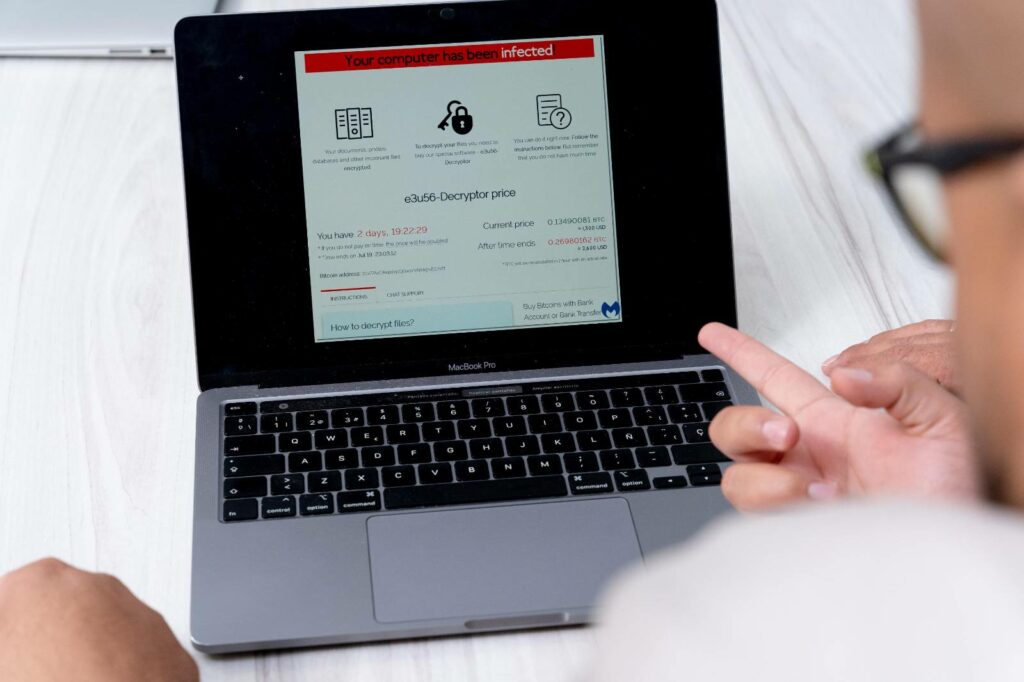
Immediate Ransomware Help
Don’t let ransomware hold your business hostage. Our experts are ready to recover your data and secure your systems.
How HelpRansomware Helps
In this context, prevention and response capabilities cannot be left to chance.
At HelpRansomware, we support companies and utilities in strengthening their digital defenses with specific services:
- Personalized ransomware consulting, to assess your risk level and build a tailored strategy.
- Phishing training and simulations, to reduce the human factor as a weak point.
- Security audits, to identify and fix vulnerabilities before they are exploited.
- Data recovery and post-attack support, to minimize downtime in the event of a compromise.
Resilience is built before the attack, not after. Companies that invest in security today will be able to resist and recover more quickly tomorrow.
Conclusion: protect today to ensure tomorrow
The energy sector is not just a lucrative target for criminal hackers: it is a strategic objective, the compromise of which puts the economic and social stability of an entire country at risk.
For this reason, Italian utilities must act immediately, strengthening their defenses and adopting an integrated approach that combines technology, training, and procedures.
We at Helpransomware believe that security should be a priority.
Want to know if your company is ready to withstand a ransomware attack?
Request a free assessment of your digital infrastructure and discover how to transform your organization into a resilient system before it’s too late.
Frequently Asked Questions (FAQ)
Because it represents critical infrastructure: an attack can cause blackouts, halt production, and compromise national stability.
Ransomware remains the main danger, as it combines financial extortion with operational disruption. In addition, hacktivism campaigns are becoming increasingly aggressive.
With a proactive approach: threat intelligence, practical exercises, secure backups, and network segmentation.
Yes. We provide tailored consulting, attack simulations, security audits, and post-attack data recovery, helping companies turn vulnerability into resilience.


